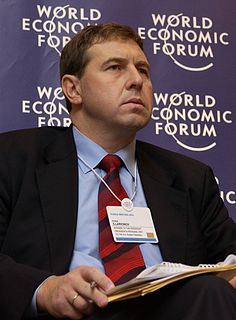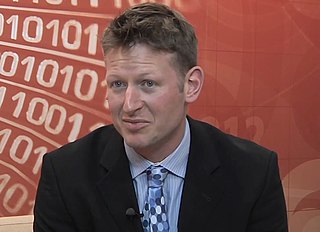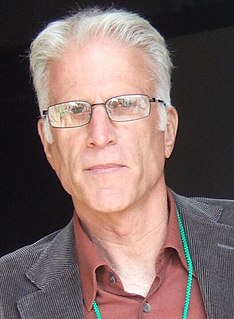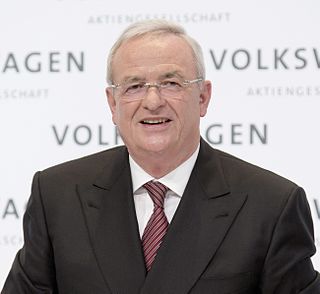Top 1200 Carbon Dioxide Emissions Quotes & Sayings
Explore popular Carbon Dioxide Emissions quotes.
Last updated on December 2, 2024.
Carbon dioxide is natural. It occurs in Earth. It is a part of the regular lifecycle of Earth. In fact, life on planet Earth can’t even exist without carbon dioxide. So necessary is it to human life, to animal life, to plant life, to the oceans, to the vegetation that’s on the Earth, to the, to the fowl that - that flies in the air, we need to have carbon dioxide as part of the fundamental lifecycle of Earth.
President Bush insisted today that he was not caving in to big-money contributors, big-time lobbyists, and overall industry pressure when he broke a campaign promise to regulate carbon dioxide emissions from power plants. But the air was thick today with accusations from people who believe that's exactly what happened.
The fundamental reason why carbon dioxide in the atmosphere is critically important to biology is that there is so little of it. A field of corn growing in full sunlight in the middle of the day uses up all the carbon dioxide within a meter of the ground in about five minutes. If the air were not constantly stirred by convection currents and winds, the corn would stop growing.
One of the reasons the United States has actually been reducing its emissions in recent years is actually that there's been a boom in natural gas. It's displacing coal. It emits less carbon dioxide when you burn it. This is not really an Obama policy. It's just something that happened because of technology and the free market.
Here's the problem - carbon dioxide doesn't contribute to smog and isn't a health threat. All of this is being done because some people believe carbon dioxide is causing global warming, and that preventing carbon dioxide from entering the air is the only answer. Never mind that there is still an ongoing scientific debate about global warming itself, and that some respected climate scientists believe that methane is a better target, California legislators have locked their sites on carbon dioxide.
There is no strong evidence to prove significant human influence on climate on a global basis. The global cooling trend from 1940 to 1970 is inconsistent with models based on anthropogenic carbon dioxide emissions. There is no reliable evidence to support that the 20th century was the warmest in the last 1000 years.
If NASA were advancing a space frontier there would be challenges you've never seen before. You have to be creative and you have to patent some new idea. You get to Mars...well, how do we get the water from the soil? I gotta invent a new device that will do that. And the carbon dioxide in the atmosphere, how can we use that? Can we breathe the oxygen from the carbon dioxide?
We have to, in the next ten years, begin to decrease the rate of carbon dioxide emissions and then flatten it out. If that doesn't happen in ten years, we're going to be passing certain tipping points. If the ice sheets begin to disintegrate, what can you do about it? You can't tie a rope around an ice sheet.
I must say that when I first learned of the existence of the Australian Greenhouse Office, I assumed it was responsible for supplying tomatoes to the Parliament House kitchen. But, no, as I soon learnt as industry minister, it was in fact a government funded redoubt of veritable soldiers in a war against carbon dioxide. The zealotry and obsessive passion of these warriors in the battle against the apparent evils of carbon dioxide remains a curiosity to me. After fighting these people for three years as industry minister, I really did wish they would just go away and grow tomatoes.
I am troubled by the lack of common sense regarding carbon dioxide emissions. Our greatest greenhouse gas is water. Atmospheric spectroscopy reveals why water has a 95 percent and CO2 a 3.6 percent contribution to the 'greenhouse effect.' Carbon dioxide emissions worldwide each year total 3.2 billion tons. That equals about 0.0168 percent of the atmosphere's CO2 concentration of about 19 trillion tons. This results in a 0.00064 percent increase in the absorption of the sun's radiation. This is an insignificantly small number.
There is a point of no return after which warming becomes unstoppable - and we are probably going to sail right through it. It is the point at which anthropogenic (human-caused) warming triggers huge releases of carbon dioxide from warming oceans, or similar releases of both carbon dioxide and methane from melting permafrost, or both. Most climate scientists think that point lies not far beyond 2 degrees C hotter (3.6 degrees F).
Climate change is a crucial issue in todays global agenda. Hopefully, we will wake up to this reality, sooner rather than later. Pressure has been mounting on European Union Member States to act decisively to fight global warming. A bold target has been set reducing carbon dioxide emissions by 20 by 2020.






















































